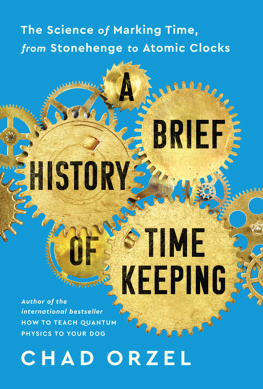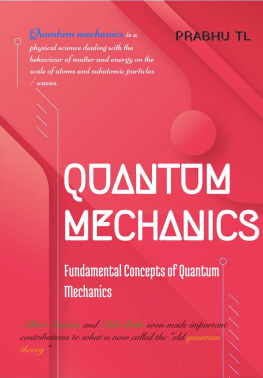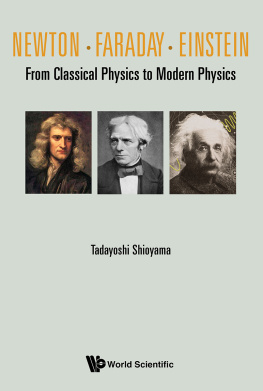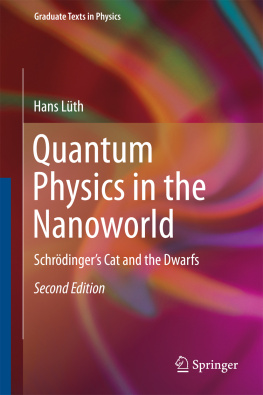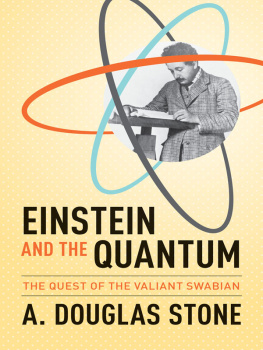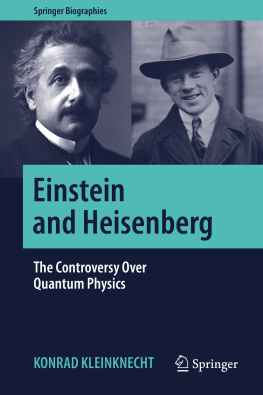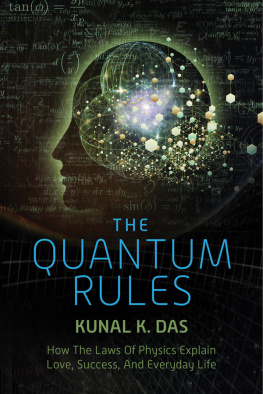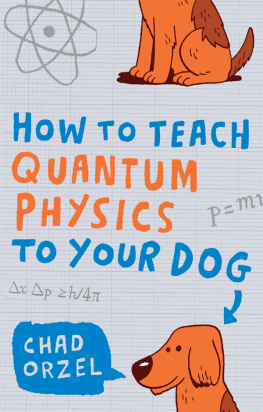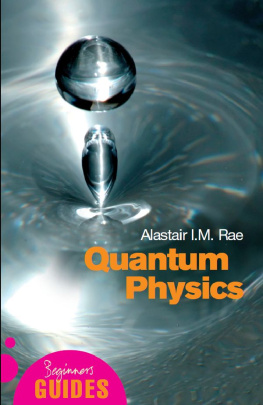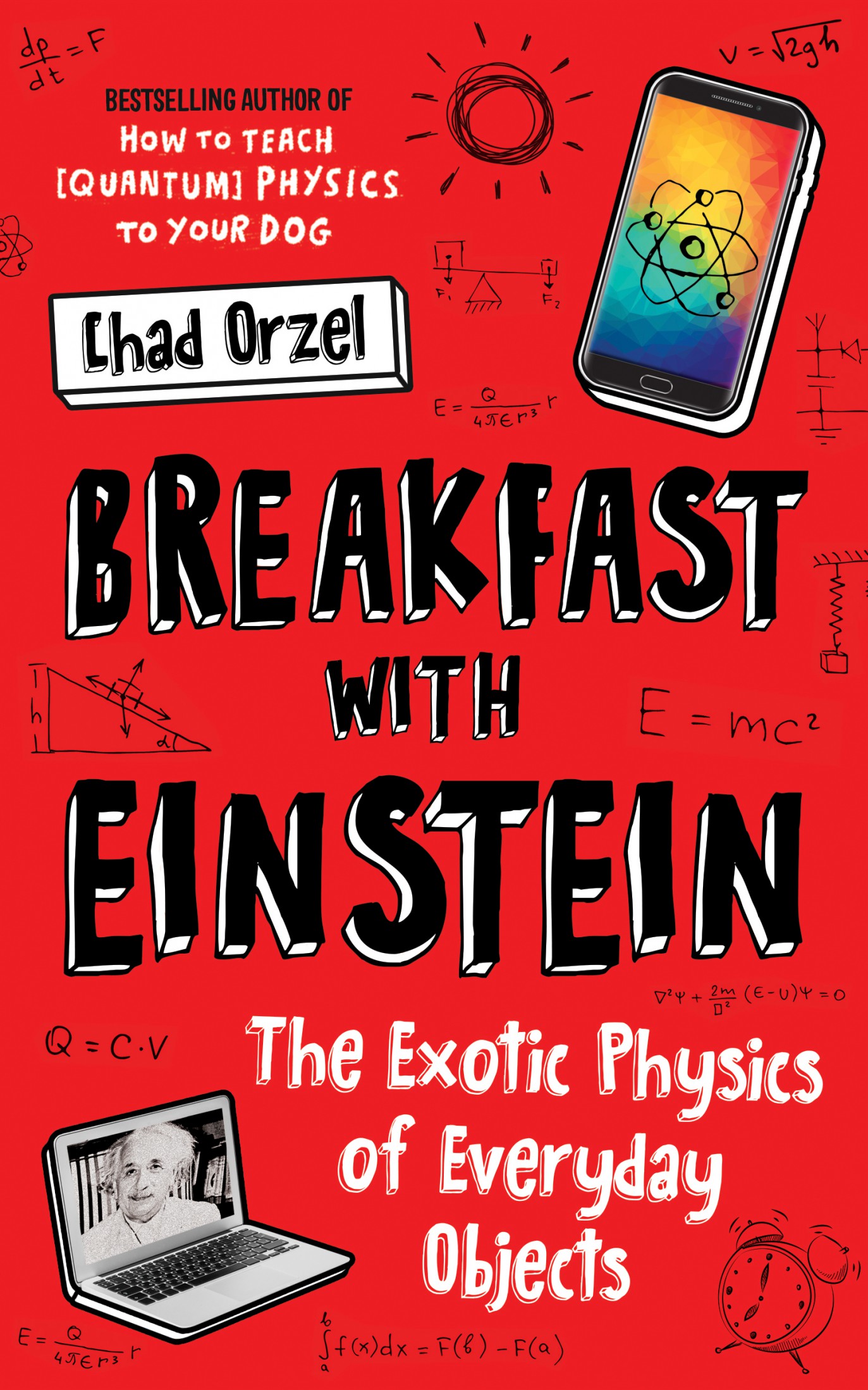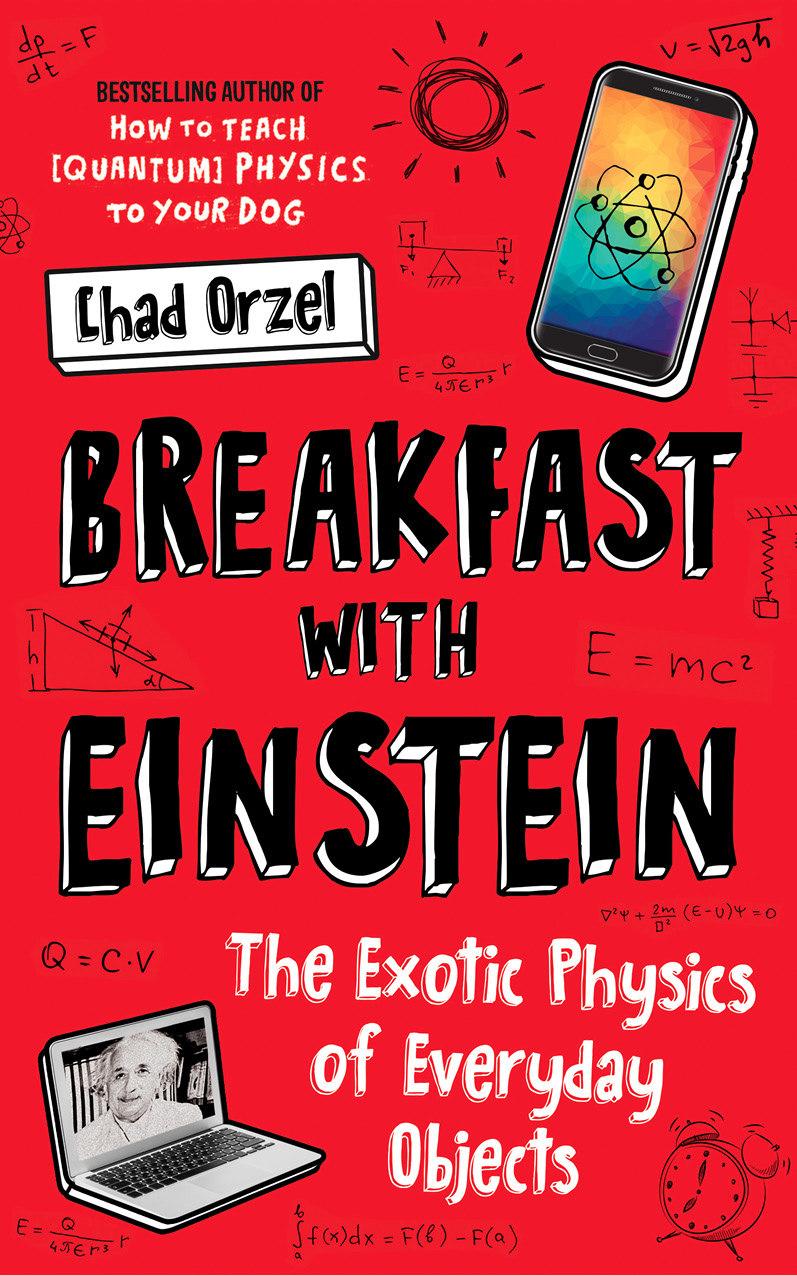Common wisdom paints quantum mechanics as one of the most abstract and esoteric of subjects, daunting for non-experts. Yet, as Chad Orzel wonderfully shows in Breakfast with Einstein , a full gamut of our commonplace daily activitiesfrom boiling water for teato taking and exchanging photos with our electronic cameras and phonesdepends on quantum rules. By focusing on how quantum mechanisms guide the workings of his typical morning routine, Orzel cleverly brings those important principles close to home.
Paul Halpern, author of The Quantum Labyrinth: How Richard Feynman and John Wheeler Revolutionized Time and Reality
Orzel draws us in with the everyday experience. And then we find we are on a journey of more than 100 years of physics. The reader is rewarded not only with a deeper understanding of everyday things, but also learns how physicists themselves look at the world every day.
For David, my favorite Little Dude.
Of all the little dudes I know, youre the one I love the best.
Introduction
The sun comes up not long before my alarm clock starts beeping, and I get out of bed to start the day. Its still dark in the hallway when I leave the bedroom, the status light on the smoke detector casting a faint light on the wall. Down in the kitchen, I put water on for teachecking for the glow of the heating element to make sure I havent groggily put the kettle on the wrong burner again. I open the refrigerator to start breakfast, careful not to dislodge the many works of art held to the door with magnets. I slide a couple of slices of bread into the toaster oven, jiggling the rack when it sticks a bit, and lean against the counter while I wait.
My tea is still a bit too hot to drink, but I savor the aroma of the rising steam as it cools, and start up the computer to see whats going on in the world. My social media feeds are full of the usual overnight faremorning news from Europe and Africa, evening stories from Asia and Australia, digital photos of the kids and cats of friends around the world. My email is mostly from students requesting homework help, plus a couple of receipts and tracking notices from online purchases.
After my tea and toast, I grab the dogs leash and we head out for our morning walk. When we return, itll be time to get the kids up and ready for school. Once theyre on the bus, Ill head off to school myself, to teach another class of students about the physics all around them.
When I tell people Im a physicist, Im often met with questions about exotic phenomena, drawing on some of the vivid and colorful examples that have emerged from decades of debate about quantum theory. People ask about Schrdingers famous cat, alive and dead at the same time, or about the quantum entanglement that Einstein derided as spooky action at a distance, or whether God really plays dice with the universe. These topics capture the imagination of nonscientists as well as professional physicists, because they confound our intuition about how the world works.
While physicists and popularizers of physics have been very successful at pushing some of these abstract and odd-seeming ideas into popular culture, in a way we are also victims of that success. Most people who have heard of these strange and captivating phenomena also think of them as the sort of things that only turn up in a multibillion-dollar experiment like the Large Hadron Collider, or in extreme astrophysical environments like near the event horizon of a black hole. The counterintuitive nature of these phenomena and the metaphorical language we must use in order to discuss them in nonmathematical terms combine to convince most people that quantum physics has no relevance at all to everyday life.
It might come as a surprise, then, to learn that nothing in the description of a mundane morning that began this introduction would be possible without exotic quantum physics. The time marked by our alarm clocks can be traced back to energy states within atoms that exist because of the wave nature of electrons. The semiconductor chips at the heart of the computers we use to send one another funny cat memes cant be understood without quantum superpositions like that of Schrdingers infamous zombie cat. Neither the chemistry of aroma nor even the stability of solid matter that keeps our breakfasts from falling through the table can be explained without the strange statistical properties of quantum spins.
On closer inspection, it turns out that our everyday world is profoundly influenced by the exotic and abstract phenomena of quantum physics. Even the most ordinary of activities, those that make up our morning routine, are fundamentally quantum, when you dig into them a bit.
This might sound unlikely at first, but if you think about it, it has to be true. After all, physicists inhabit the same everyday world as everyone else. While state-of-the-art physics experiments use lasers and particle accelerators to probe that world at a level far beyond our everyday experience, even the most complicated experiments and observations must begin and end right here in ordinary reality. And the sophisticated apparatus employed for those experiments has mundane roots: the tools and techniques used to study even the most arcane aspects of physics were built up deliberately over many years, following small clues to ever stranger phenomena. The clues that lead us to the exotic and the abstract began with hints and mysteries in the behavior of ordinary objects. If quantum physics didnt affect the everyday, macroscopic world, we never wouldve needed to discover it.
The story of that discovery begins with observations and technologies that are very familiar to nearly anyone who has ever made breakfast. The very first quantum theoryin fact, the theory that introduced the word quantum to physicswas invented by Max Planck to explain the red glow of a hot object like the heating element in an electric stove or toaster. Quantum ideas were first applied to material objects in Niels Bohrs model of the hydrogen atom; you see the underlying physics in action any time you use a fluorescent light.
The history of quantum physics is also a history of scientists making bold leaps and lucky guesses. Planck and Bohr introduced their quantum models as desperate tricks to explain phenomena that classical physics simply couldnt. Louis de Broglie proposed that electrons might behave like waves for reasons of mathematical elegance, and the wave nature of matter turns out to be essential for understanding and controlling how electric current moves, enabling an enormous range of modern technologies. Wolfgang Pauli explained the conceptual basis of chemistry in a stroke when he introduced his exclusion principle. Pauli exclusion also turns out to be crucial to understanding problems he hadnt yet considered, like the physics of refrigerator magnets and why solid objects dont collapse in on themselves.
Albert Einstein was a key player in all of thishis name isnt on the cover just to sell books. We mostly associate Einstein with his theory of relativity, a different (and just as fascinating) branch of modern physics, and if hes mentioned at all in connection with the quantum, its usually to quote one of his many pithy and disdainful remarks on the theory from his later years.


